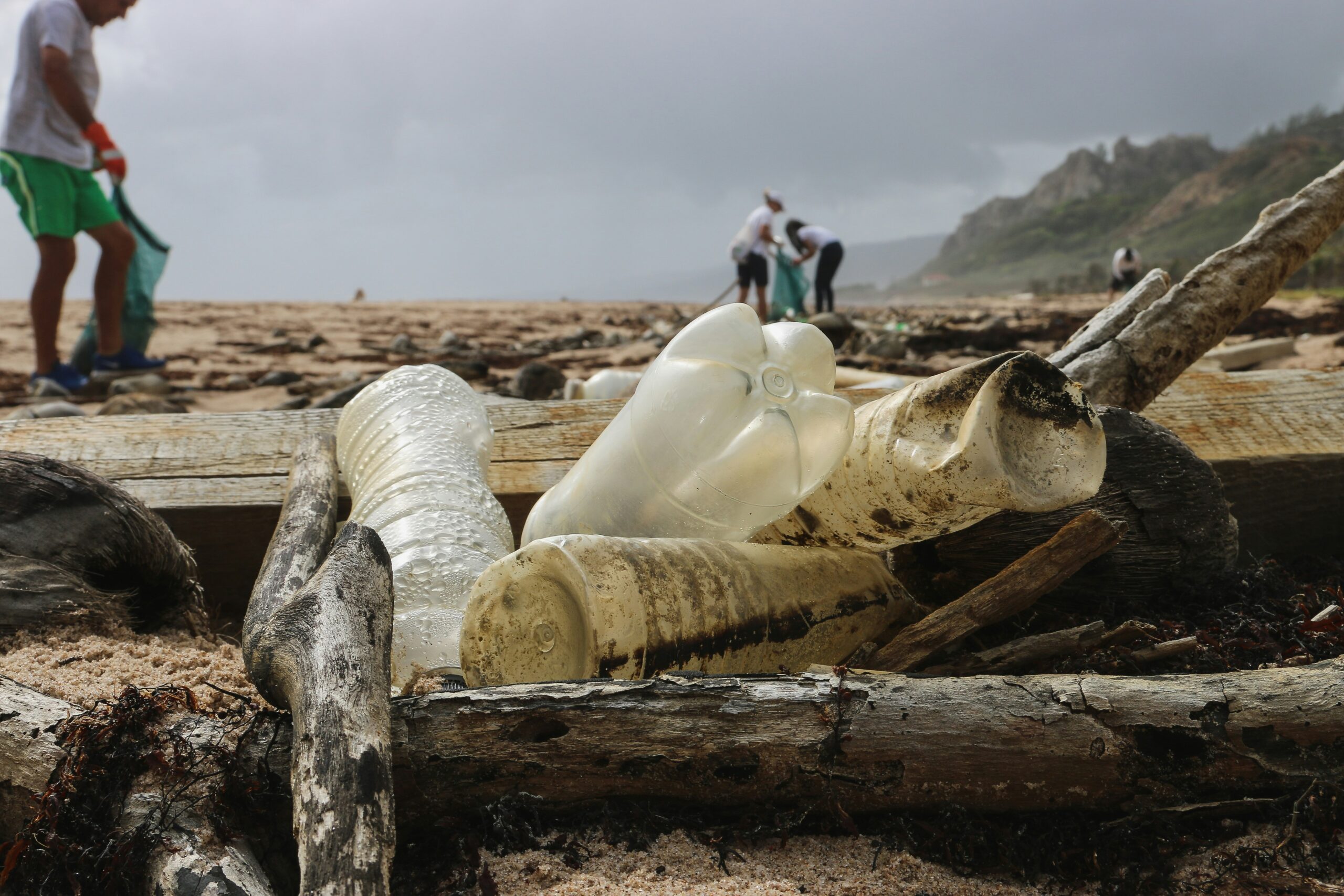Negotiators around the world are convening in Busan, South Korea this week for the final round of negotiations to end plastic pollution.
In 2022, world leaders made a historic agreement to negotiate a global, legally-binding treaty on plastic pollution, including in the ocean, by 2024. The fifth and final round of negotiations will run until the 1st of December.
More than 900 independent scientists have signed a declaration calling for an effective treaty to end plastic pollution by 2040.
The SMC asked experts to comment.
Professor Trisia Farrelly, Senior Research Scientist, Cawthron Institute, & Coordinator of the Scientists’ Coalition for an Effective Plastics Treaty, comments:
“We need an ambitious treaty [focusing on] primary plastic production reduction targets […]. That’s really the only way we’re going to make any dent in the global plastics crisis.
“We need really strong controls at the supply side, including regulations of groups of the most hazardous chemicals that we find in plastics. There’s over 16,000 chemicals in plastics, and many of those are known hazardous chemicals, and the vast majority are unregulated in current multilateral environmental agreements.”
“If we have a weak treaty, and if it’s based on voluntary commitments, we’re looking more or less at the status quo, and the status quo will see a 70% increase in plastics production, consumption and waste from now until 2040 according to the latest OECD report. Regardless of the efforts that we could be making in terms of better sorting and collection waste management, we’re really not going to solve the issue.
“On day one, we finished at about 11 o’clock, and we were already seeing a continued push against including “chemicals of concern” in the treaty. But plastics are chemicals, many are substances of concern, and many of these aren’t captured in existing international policies.
“The most hazardous chemicals that we know have already been identified in other multilateral environmental agreements – we’d like to see those as an initial list in the annex of this treaty, but we need the right scientists and other experts brought in to guide the adding of more to that list over time […] as new and emerging science comes to light.
“That’s the voice of the Scientist Coalition. One of the bottom lines – apart from the global plastic production reduction – is to ensure that we have the right bright minds at the table to help guide the COPs in making the right decisions about the listings, but also about implementation more broadly.”
“The Pacific Islands have been some of the strongest voices in the Treaty Negotiations since the very beginning. And that is because they are amongst some of the most affected, most impacted communities in the world. […]. They manufacture a tiny amount of products […] and yet, they’re disproportionately impacted by the triple threat that plastics are part of, including climate change, biodiversity loss, and emerging contaminants from pollutants from plastics.
“The communities most impacted by plastic pollution have to be the loudest. And that’s absolutely the case for the Pacific Islands. So we’ll see some of the most ambitious interventions from these communities. And they’re [the Pacific Islands] very clued up about the health impacts, biodiversity impacts, and climate change impacts of plastics. They’re very well organized, so I expect to see some very strong interventions from the floor.”
Conflict of interest statement: “I’m the Co-ordinator of the Scientists’ Coalition for an Effective Plastics Treaty, a body of independent experts who have been working on the Treaty Negotiations since the first negotiating session in Uruguay. Our role is to support member states by providing sound evidence based science.”
Dr Olga Pantos, Science Leader, Institute of Environmental Science and Research (ESR), comments:
“We are facing a triple planetary crisis: climate change, biodiversity loss and pollution. Plastic is a major contributor and amplifier of all three. Action needs to be taken to prevent the damage to the environment and people.
“There is a common misconception that plastics only pose a threat to the environment after they’ve been discarded into the environment. The reality is plastics are complex pollutants that result in the release of hazardous chemicals, macroplastics, micro- and nanoplastics (MNPs) into the ecosphere throughout their entire life cycle. Many of these are considered persistent pollutants, meaning they do not degrade over time.
“Plastics are an integral part of modern living. Many are obvious, like food packaging. Others less obvious, such as the use of plastics in the growing and processing of food. Significant levels of plastics are used in horticulture and agriculture globally, from soil covers to netting and irrigation.
“Approximately 4,000 of the 16,000 chemicals associated with plastics are known to cause harm to human health due to their toxicological properties, including endocrine disruptors, carcinogens, mutagens, eliciting inflammatory and immune response, and even disruption of gut microbiomes.
“It’s essential that an ambitious and effective treaty, based on scientifically robust evidence, is achieved to ensure a safe and sustainable future for generations to come. This problem needs to be tackled from the top of the waste hierarchy, with a significant reduction in production of plastic polymers. Establishing an international legally binding instrument to achieve this is critical for the future health of all environments, and the communities that rely upon them.”
Conflict of interest statement: None declared. Dr Pantos is a signatory of the declaration by the Scientists’ Coalition for an Effective Plastics Treaty.
